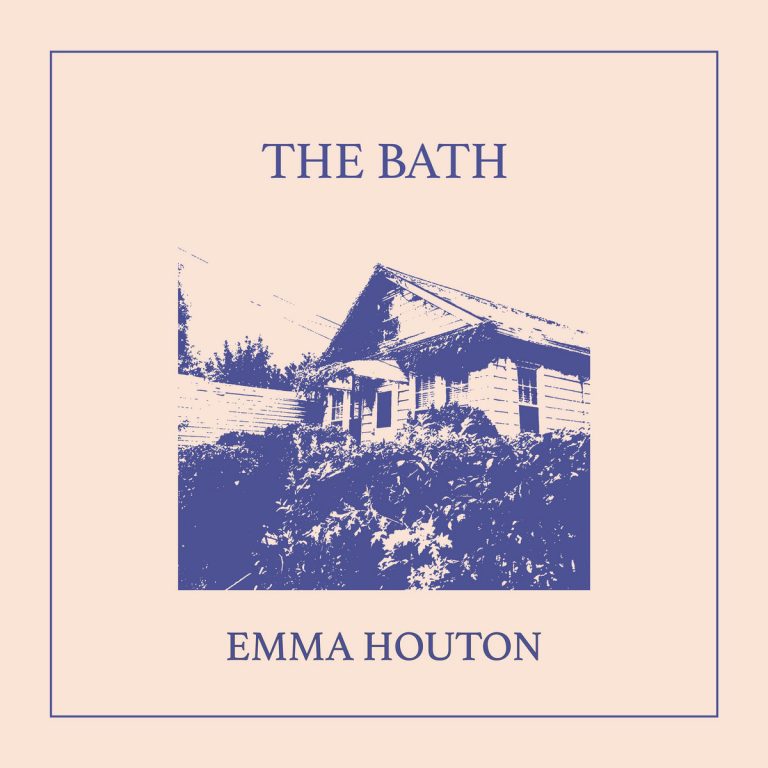What comes to mind when you think of a bath? Bathing, naturally, but ponder a bit further, if you will. You’re likely thinking of a place for relaxation, I wager, whether for some much needed cleansing after a long day, or more for one of those nights spent enjoying some candles and a cheap bottle of wine.
For Emma Houton, on her debut album, The Bath takes on a much different, graver meaning. She’s delving into the water itself: she doesn’t view it as some common household installation, but as a place for baptism, for drowning: for rebirth and death alike. In her world, it’s a damn haunted place, and her beckoning, deeply expressive voice readily yanks us into her own interpretation.
It wasn’t an idea arrived at overnight. She’s spent a lifetime arriving at these tortured walls. Raised Methodist by a particularly Irish father, her youthful mind was steeped in folklore and faith, the former of which in particular has persisted as a major interest into her adult life.
The Bath serves as a device to dig into these very interests. Initially conceived as a thick score for a choir of eight, the realities of the pandemic reshaped her vision by pure necessity. Instead, she’s starkly alone throughout the album’s run time, singing all eight parts herself, with the listener perched, seemingly just above, watching as she digs out her very soul to leave it writhing before us. A bit dramatic of me, you say? Listen and try to remain objective. It’s all but impossible.
A ready comparison is the earlier work of Julianna Barwick, but frankly, it’s too easy a connection. Houton’s voice is all her own, and she has very little interest in comforting or affirming. Instead, she seeks to challenge, to drag us into a pained world of her own creation.
One regard in which Barwick is a fair comparison is through both artists echoing fascination with the human voice itself. Houton is often satisfied to leave us with wordless impressions, however stark and congruently gorgeous. Her passionate singing, as well as the album’s spare production, often seem to mimic – and even become – water itself, with its voluminous layers interlocking into something akin to the feeling of plunging into placid, still waters. Take the opening moments of “Gemini”: her distant wail feels truly one with her conceptual ocean, like the drifting of tides, all before it cuts to absolute silence. You’re lost now, at the mercy of where she’ll take you next.
Lying at the center of this world is “Bow and Balance”, her expansive retelling of a traditional murder ballad. Two sisters fall for the same man, and, suffice to say, only one survives their shared passion, if only for a short while. Across nearly 11 minutes, her impressionistic take on the tale of murder and woe rakes us across the coals of longing and regret. It recalls the tortured folk of The White Buffalo, or even Tom Waits at his storytelling, emotive best.
Part of the joy in listening to The Bath – however dark the music itself can often be – is in hearing Houton discover the power of her own voice. To be sure, The Bath is quite clearly a fledgling statement, that of an artist carefully, even cautiously, coming into their own, and that’s part of what makes it so exciting. As she emerges, purified from her own imagined waters, where she might go next feels as limitless as a rippling reflection.

